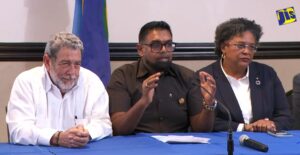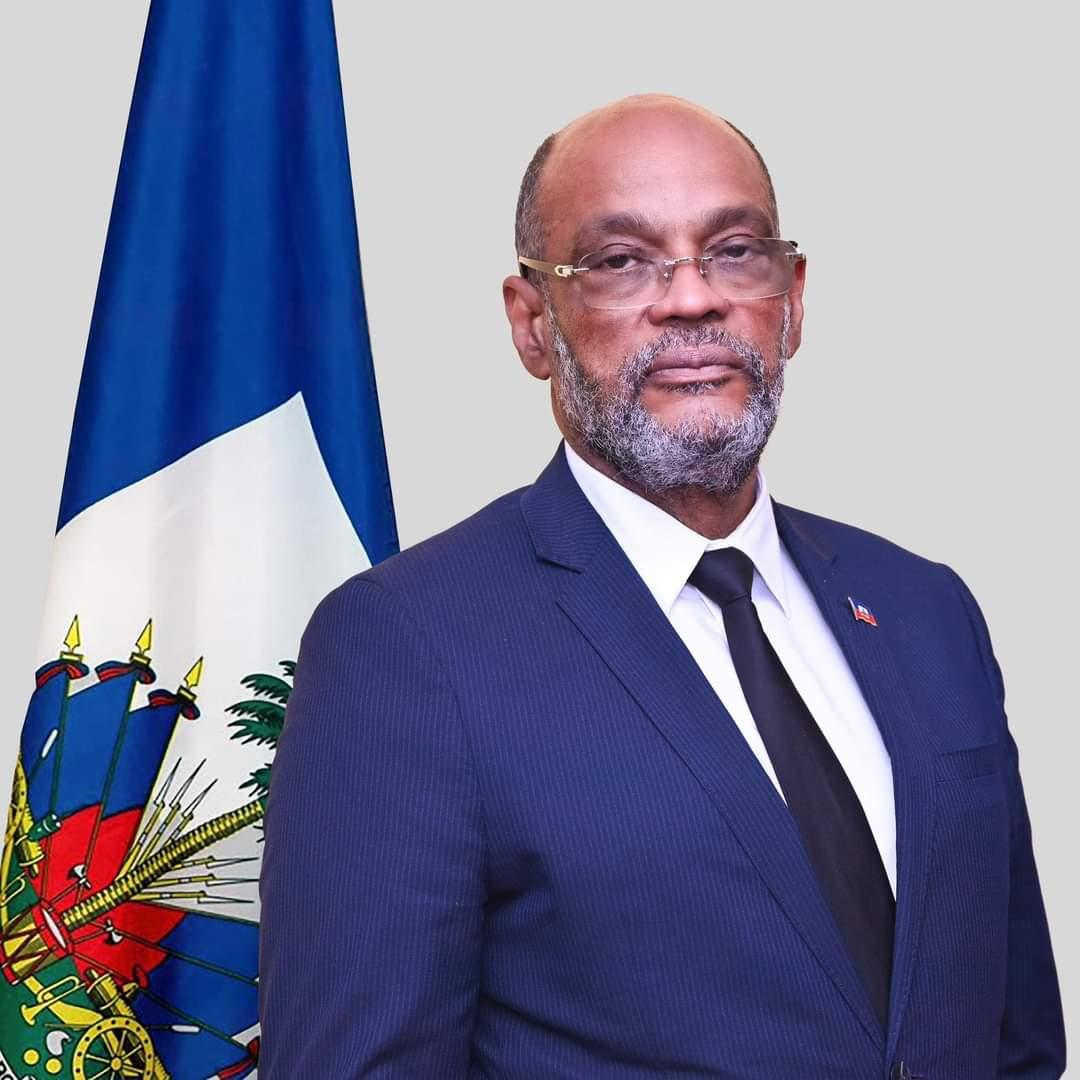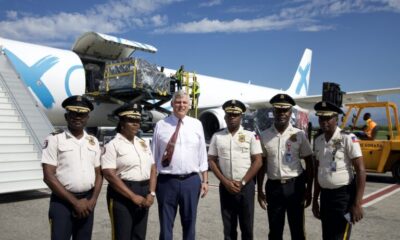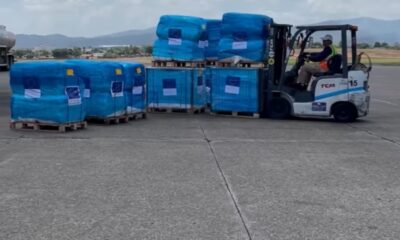Rashaed Esson
Staff Writer
An interim prime minister for Haiti is coming as Ariel Henry, Haiti’s de facto Prime Minister has resigned, as of Monday March 11th, after essentially occupying the office ‘illegally’ as of February 7th, 2024.
Haiti has not held general elections since 2016 and a Stakeholder group comprising the U.S., Canada and CARICOM countries have set out to restore the crippled democracy with specific terms communicated in an ‘Outcome Declaration of CARICOM International Partners and Haitian Stakeholders.’
This was announced by Irfaan Ali, President of Guyana and Caricom chair, during the closing of a press conference following a high-level meeting on Haiti, held in Kingston, Jamaica, also on Monday March 11.

“We acknowledge the resignation of Prime Minister Ariel Henry, upon the establishment of a transitional presidential council, and the naming of an interim prime minister,” Ali maintained.
The transitional council, which Ali briefly mentioned before he announced Henry’s resignation, will lead the way for a peaceful transition of power for Haiti.
This is crucial for political stability as there hasn’t been an election in Haiti since the assassination of Jovenel Moïse, after which Ariel Henry took office as Prime Minister.
Ali adds that the transitional governance arrangement also lights the way for the continuity of governance, holding free and fair elections as well as encouraging security.
He continued to express thanks to Henry for his work in the embattled Republic.
“I want to pause and thank Prime Minister Henry for his service to Haiti, his service to the Haitian people; and for his personal commitment for the furtherance for the development of Haiti and advance of the people of Haiti.”
Following Ali’s statement was an applause, directed towards Henry, who’s life was threatened by gangs in efforts to push him to resign.
The Transitional Presidential Council will be composed of seven voting Members and two non-voting Observers, Ali says.
And the seven voting members will be made of one representative from, Collectif December 21st; EDE/RED/Compris Historique; Lavalas; Montana; Pitit Desalin and the Private Sector.
Meanwhile, non-voting members will be represented by one member from Civil Society and one from the Interfaith community.
In continuation, Ali goes into more details about the council, mentioning how it will function.
“The Council will exercise specified presidential authorities during the transition, operating by majority vote. The transitional presidential council will swiftly select and appoint an interim Prime Minister. The transitional presidential council will together, with the interim Prime Minister, appoint an inclusive council of ministers.”
It will also “hold the relevant and possible powers of the Haitian presidency during the transition…until an elected government is established.”
The council, he continued, “will appoint an inclusive council of ministers, co-sign the orders decrees and to sign off on the agenda of the council of ministers, set the essential criteria for the selection of an impartial, provisional electoral council, and establish the provisional electoral council,” he said.
Andrew Holness, the Prime Minister of Jamaica who hosted the meeting at the Jamaica Pegasus in New Kingston, Jamaica and spoke at the conference, expressed that he is confident that Haiti will recover.
“I am pleased…that we have convened at such short notice, this meeting, with great determination, that this time we will do for Haiti what needs to be done,” he stated.
Henry took to Facebook to express that his current government will act as a “Caretaker Government” for the Transitional Council being implemented, until the interim prime minister is appointed.


 Caribbean News1 week ago
Caribbean News1 week ago
 Caribbean News1 week ago
Caribbean News1 week ago
 Caribbean News1 week ago
Caribbean News1 week ago
 Caribbean News1 week ago
Caribbean News1 week ago
 Bahamas News1 week ago
Bahamas News1 week ago
 News1 week ago
News1 week ago
 News1 week ago
News1 week ago
 News3 days ago
News3 days ago























